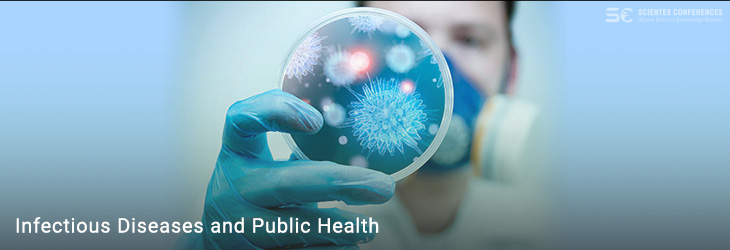Track: Infectious Diseases and Public Health

Infectious diseases continue to be a significant public health challenge globally, necessitating a multifaceted approach to their prevention, management, and control. The session on "Infectious Diseases and Public Health" will focus on the strategies employed to mitigate the impact of these diseases on populations, emphasizing the importance of surveillance, early intervention, and community education in maintaining public health safety.
One of the key aspects of managing infectious diseases is understanding the incubation period, which is the time between exposure to an infectious agent and the onset of symptoms. This knowledge is crucial for effective disease surveillance and the timely implementation of public health interventions. By monitoring incubation periods and identifying potential outbreaks early, public health authorities can initiate appropriate responses to prevent widespread transmission.
Immunization plays a pivotal role in the prevention of infectious diseases. Vaccination programs are among the most cost-effective public health interventions, significantly reducing the incidence of diseases such as measles, polio, and influenza. This session will highlight the success stories of immunization campaigns and discuss ongoing challenges, including vaccine hesitancy and the need for equitable access to vaccines, particularly in low-resource settings.
The role of centers for disease control and prevention cannot be overstated in the context of infectious disease management. These institutions are at the forefront of disease surveillance, outbreak investigation, and the development of guidelines for disease prevention and control. This session will examine the contributions of such centers to global public health efforts and explore how their work intersects with primary care settings.
Managing infectious and communicable diseases in primary care is another critical focus of this session. Primary care providers are often the first point of contact for individuals with infectious diseases, making their role in diagnosis, treatment, and prevention essential. The session will discuss best practices for managing infectious diseases in primary care, including the use of diagnostic tools, treatment protocols, and strategies for preventing the spread of infections within healthcare settings.
Healthcare-associated infections (HAIs) represent a significant concern in hospitals and other healthcare facilities. This session will explore strategies for preventing HAIs, including the importance of infection control practices, staff training, and environmental hygiene. The discussion will also extend to emerging infectious diseases, which pose new challenges due to factors such as globalization, climate change, and antimicrobial resistance.
Epidemiology, the study of the distribution and determinants of health-related events, is a cornerstone of public health. Understanding the epidemiology of infectious diseases enables public health professionals to design and implement effective prevention and control measures. This session will delve into the latest epidemiological trends and the role of public health in responding to emerging threats.
In conclusion, the session on "Infectious Diseases and Public Health" will provide a comprehensive overview of the strategies and practices that are essential for preventing and managing infectious diseases. By combining surveillance, early intervention, immunization, and public education, public health professionals can effectively control disease outbreaks and promote overall health safety in communities worldwide.
Scientific Highlights
- Public Healthcare and Management
- Role of Primary Care in COVID 19 Pandemic
- Emergency Medicine and Treatment Procedures
- Seasonal Allergies & Primary Care Treatments
- Maternal Health in Primary Care
- Mental Health, Addiction, and Public Health Awareness in Primary Care
- Global & Public Health Initiatives
- Primary Care Oncology
- Primary Care Cardiology
- Primary Care Urology
- Quality in Primary Care and Epidemiology
- Infectious Diseases and Public Health
- Surgical Care, Critical Care, and Emergency Nursing
- Primary Care Advancements in Diabetes and Obesity
- Pediatrics and Nurse Practitioners
- Geriatric Care in Public Health
- Primary Health Care and Family Medicine
- Orthopedic Primary Care
- Primary Care Dermatology
- Reproductive and Sexual Health
- Primary Care Ophthalmology
- Primary Care Dentistry
- Chronic Disease Management in Primary Care


